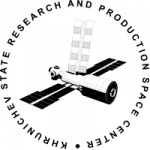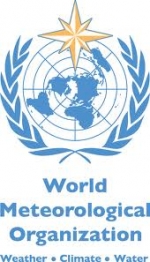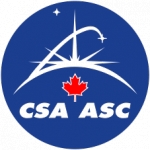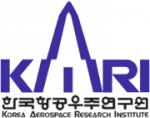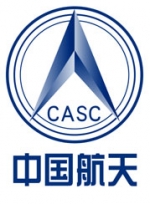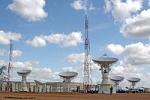Displaying items by tag: public organisation
INTA - Instituto Nacional de Técnica Aeroespacial
INTA is Spain's space agency.
It was founded in 1942, as the Instituto Nacional de Técnica Aeronáutica (National Institute of Aeronautics), and has its headquarters in Torrejón de Ardoz, near Madrid, Spain.
European GNSS Agency (GSA)
As an official European Union regulatory authority, the European GNSS Agency (GSA) manages public interests related to European GNSS(*) programmes.
The Agency's strategic objectives include the achievement of a fully operational GALILEO system. This includes the laying of foundations for a fully sustainable and economically viable system and its security.
(*) GNSS: Global Navigation Satellite Systems
Skywin Wallonie
Skywin Wallonie is the Belgian Aerospace Cluster, created and labellized by the Walloon Region in July 2006.
Resulting from the merge of the two previous clusters EWA and Wallonie Espace, respectively dedicated to Aeronautics and Space sectors, Skywin Wallonie is "weighting" 7,000 jobs and represents a global revenue of 1.25 billion Euros.
For Space, the priority goes to the development of space applications and related services. Besides, Skywin also aims at supporting the development of earth observation instruments. The cluster is actively supporting the technological transfer and the spin-off creation, especially when related to space technologies that are recognized as "standard". Furthermore, Skywin acts as a lever for new technological developments, in good intelligence and coordination with the federal space industry policy (i.e. Belspo - The Belgian Science Policy).
Khrunichev Research and Production Space Center
Khrunichev Research and Production Space Center is a Moscow-based producer of spacecraft and space-launch systems, including the Proton and Rokot rockets.
The company's history dates back to 1916, when an automobile factory was established outside Moscow. It soon switched production to airplanes and during World War II produced Ilyushin Il-4 and Tupolev Tu-2 bombers. A design bureau, OKB-23, was added to the company in 1951. In 1959, the company started developing intercontinental ballistic missiles, and later spacecraft and space launch vehicles. The company designed and produced all Soviet space stations, including Mir. OKB-23, renamed to Salyut Design Bureau, became an independent company in 1988. In 1993, the Khrunichev Plant and the Salyut Design Bureau were joined again to form Khrunichev State Research and Production Space Center.
In the 1990s, the company entered the International Launch Services joint-venture to market launches on its Proton rocket. Khrunichev subsequently became a successful launch service provider on the international space launch market.
World Meteorological Organization (WMO)
The World Meteorological Organization (WMO) is an intergovernmental organization with a membership of 189 Member States and Territories.
It originated from the International Meteorological Organization (IMO), which was founded in 1873. Established in 1950, WMO became the specialised agency of the United Nations for meteorology (weather and climate), operational hydrology and related geophysical sciences. It has its headquarters in Geneva, Switzerland, and is a member of the United Nations Development Group.
Canadian Space Agency (CSA)
The Canadian Space Agency (CSA) (French: Agence spatiale canadienne (ASC)) is the Canadian government space agency responsible for Canada's space program. It was established in March 1989 by the Canadian Space Agency Act.
The headquarters of the CSA is located at John H. Chapman Space Centre in Saint-Hubert, Quebec. The agency also has offices in Ottawa, Ontario at the David Florida Laboratory and small liaison offices in Washington, D.C.; Paris; Cape Canaveral, Florida; and Houston, Texas.
Korea Aerospace Research Institute
The Korea Aerospace Research Institute (KARI) is the aeronautics and space agency of South Korea. Its main laboratories are located in Daejeon, in the Daedeok Science Town.
The agency was founded in 1989.
China Aerospace Science and Technology Corporation (CASC)
The China Aerospace Science and Technology Corporation (CASC) is the main contractor for the Chinese space program.
It is state-owned and has a number of subordinate entities which design, develop and manufacture a range of spacecraft, launch vehicles, strategic and tactical missile systems, and ground equipment. It was officially established in July 1999 as part of a Chinese government reform drive, having previously been one part of the former China Aerospace Corporation. Various incarnations of the program date back to 1956.
Agencia Bolivariana para Actividades Espaciales (ABAE)
The Agencia Bolivariana para Actividades Espaciales (ABAE; In English, Bolivarian Agency for Space Activities) is an organisation belonging to Venezuela's Ministry of the Popular Power for Science and Technology. Its mission is to develop and carry out the policies of Venezuela's Executive Power regarding the peaceful uses of outer space. Previously was known as Centro Espacial Venezolano(CEV; In English, Venezuelan Space Centre). Since its inception it has been working in the project of the first Venezuelan satellite named Simón Bolívar Satellite which became operative on October 29, 2008.
CONAE - Comision Nacional de Actividades Espaciales
As a specialized agency of the Argentine State, CONAE is the only government body to understand, design, execute, control, manage and administer space projects and entrepreneurships throughout the country. It represents the Nation's civil research and development capabilities in space activities.
To accomplish its mission, CONAE has to plan, execute and evaluate a National Space Program for peaceful use of space science and technology.
For more info: http://www.conae.gov.ar/




